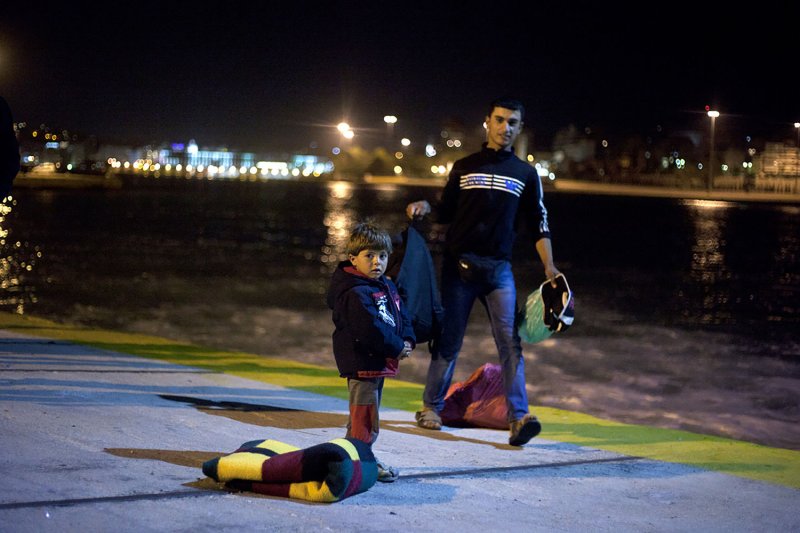Syrian migrants disembark from the passenger ship 'Tera Jet', following their trip from the island of Lesbos to the port of Piraeus, near Athens, Greece on Sept. 1, 2015. A deal between the EU and Turkey which took effect Sunday would send back any refugees who don't ask for asylum or whose request is denied. File photo by Yuksel Pecenek/ UPI |
License Photo
LESBOS, Greece, March 20 (UPI) -- An EU-Turkey deal on resettling Syrian migrants took effect Sunday but may be in limbo for the moment, with Greece saying it would not be able to implement it right away.
The influx of people crossing to Greek Islands grew ahead of the deadline and volunteers on the Greek Island of Lesbos were already handling with the first arrivals under the new deal, the BBC reported. Hours before the agreement went in to effect, a four-month-old baby girl drowned off the Turkish coast when a boat carrying migrants sank.
Migrants arriving in Greece under this new deal are now expected to be sent back to Turkey if they don't apply for asylum or their claim is rejected. The goal is to discourage people from making the dangerous sea crossing from Turkey to Greece, officials said. For its participation, Turkey will receive aid and political concessions.
Greek officials have been clear they need more manpower to fully implement the deal to return the refugees to Turkey, International Business Times reported.
Prime Minister Alexis Tsipras said his country needs at least 36 hours to fully implement the terms of the agreement, which says that for every Syrian migrant sent back to Turkey, one Syrian already there will be resettled in the EU.
"The agreement to send back new arrivals on the islands should, according to the text, enter into force on March 20. But a plan like this cannot be put in place in only 24 hours," Giorgos Kyritsis, the government coordinator for migration policy said.
The deal is not black and white on how immigrants would be sent back to Turkey. Officials in Ankara said they would submit a detailed framework in November on how they would spend 3 billion euros ($3.38 billion), the amount agreed upon by the EU.
Security and migration officials and translators, some 2,300 of them, are set to arrive in Greece to help enforce the deal.















